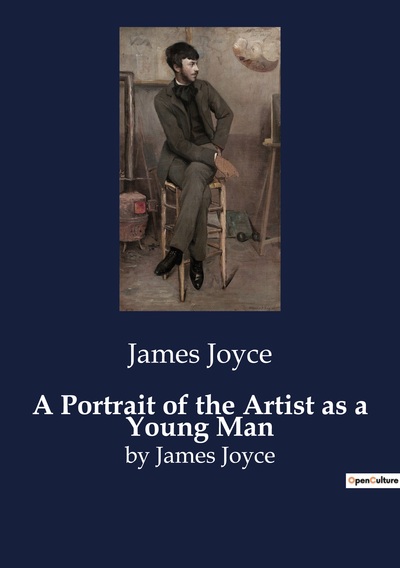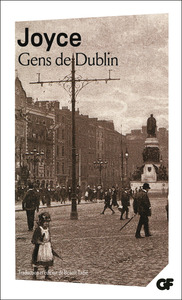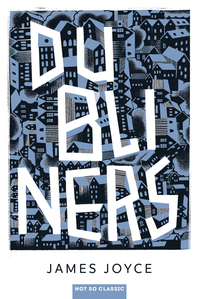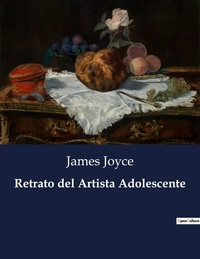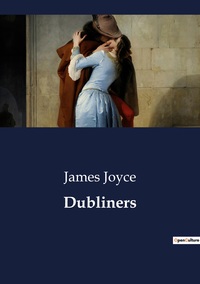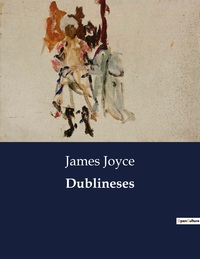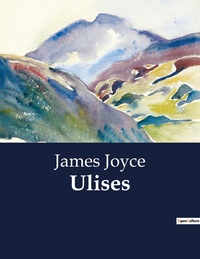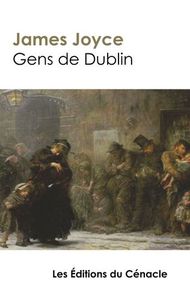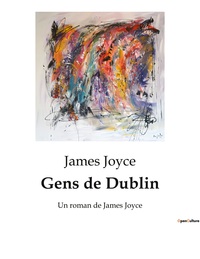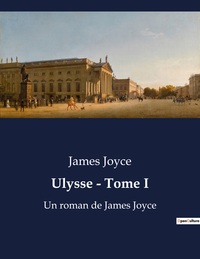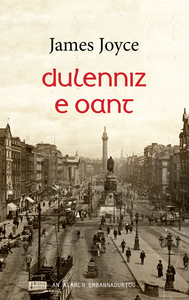Nous utilisons des cookies pour améliorer votre expérience. Pour nous conformer à la nouvelle directive sur la vie privée, nous devons demander votre consentement à l’utilisation de ces cookies. En savoir plus.
A Portrait of the Artist as a Young Man
EAN : 9791041800193
Édition papier
EAN : 9791041800193
Paru le : 17 janv. 2023
21,90 €
20,76 €
Disponible
Pour connaître votre prix et commander, identifiez-vous
Notre engagement qualité
-
 Livraison gratuite
Livraison gratuite
en France sans minimum
de commande -
 Manquants maintenus
Manquants maintenus
en commande
automatiquement -
 Un interlocuteur
Un interlocuteur
unique pour toutes
vos commandes -
 Toutes les licences
Toutes les licences
numériques du marché
au tarif éditeur -
 Assistance téléphonique
Assistance téléphonique
personalisée sur le
numérique -
 Service client
Service client
Du Lundi au vendredi
de 9h à 18h
- EAN13 : 9791041800193
- Réf. éditeur : 293526
- Date Parution : 17 janv. 2023
- Disponibilite : Disponible
- Barème de remise : NS
- Nombre de pages : 300
- Format : H:210 mm L:148 mm E:16 mm
- Poids : 390gr
- Résumé : A Portrait of the Artist as a Young Man is Joyce's first novel, published after the previous success of his short story collection Dubliners. The novel is written in a modernist style, with dialog and narration blending together in a kind of stream-of-consciousness meant to invoke the blurriness of memory. Joyce originally planned writing a realist autobiographical novel of 63 chapters titled Stephen Hero. He abandoned the attempt halfway through, and refocused his efforts on Portrait, a shorter, sharper work in the modernist style. His alter-ego remained Stephen Dedalus, named after Daedalus, the mythological Greek craftsman and father of Icarus. Portrait was written while he was waiting for Dubliners to be published, a process that took eight years and so frustrated Joyce that he once threw the manuscript of Portrait into a fire, causing his family to run to save it. The novel closely traces Joyce's early years. Like his alter-ego Stephen, Joyce was born into a middle-class family and lived in Dublin as they descended into poverty; he rebelled against his Irish Catholic upbringing to become a star student at Dublin University, and put aside thoughts of priesthood or medicine, the other careers offered him, to become a writer. Joyce doesn't shy away from sensitive topics, presenting the discoveries of youth in all of their physical detail, including Stephen's teenage visits to prostitutes (which also mirror Joyce's youth, and were how he probably contracted the suspected syphilis that plagued his vision and tortured his health for the rest of his life), and the homosexual explorations of children at a Jesuit school. The writing is in the free indirect style, allowing the narrator to both focus on Stephen and present characters and events through his eyes, until the last chapter, where Stephen's first-person diary entries suggest he's finally found his voice. As the novel progresses, the syntax and vocabulary also grow in complexity, reflecting Stephen's own development. Of Joyce's three novels, Portrait is the most straightforward and accessible. But it remains just as rich and complex as any masterpiece, with critics across generations hailing it as work of unique beauty and perception.
- Biographie : James Joyce est né le 2 février 1882 à Rathgar, dans la banlieue de Dublin. Dès 1897, il commence à écrire. Il entre à University College en 1898, et c'est en 1900 qu'il fait un véritable début littéraire, avec un article sur Ibsen. En 1920, James Joyce s'installe à Paris sur les conseils d'Ezra Pound. Il fait la connaissance d'Adrienne Monnier, de Sylvia Beach, qui publie Ulysse en 1922, de Valery Larbaud, qui le présente au Tout-Paris littéraire. En 1940, il se réfugie à Zurich, où il meurt le 13 janvier 1941.

